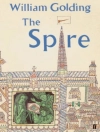In ‘Life’s Handicap: Being Stories of Mine Own People, ‘ Rudyard Kipling masterfully weaves a rich tapestry of narrative that captures the complexities of colonial life in British India. The collection, first published in 1891, comprises diverse stories characterized by vibrant prose, shrewd observations, and a keen sense of place, reflecting the multifaceted experiences of the Indian populace under British rule. Kipling’s employment of local dialects, folkloric elements, and moral undercurrents underscores both the cultural richness and the tensions inherent in imperial encounters, making the text a significant contribution to the literary canon of colonial literature. Rudyard Kipling, born in India to British parents, experienced the socio-cultural landscapes of the region firsthand, significantly influencing his literary output. His experiences as a journalist and soldier exposed him to the struggles and intricacies of colonial life, illuminating themes of duty, resilience, and identity in his works. Kipling’s deep understanding of both British and Indian perspectives grants authenticity to the stories found in this collection, echoing his belief that literature serves not just to entertain but also to connect disparate peoples and cultures. This collection is a must-read for anyone interested in colonial narratives or the complexities of cultural identity. Kipling’s stories not only illuminate the lives of his ‘own people’ but also invite readers to reflect on broader themes of humanity and colonialism. Engaging and thought-provoking, ‘Life’s Handicap’ remains relevant for modern audiences seeking to navigate the intricate legacies of history.
लेखक के बारे में
Rudyard Kipling (1865–1936), the acclaimed British author and poet, born in British India, remains an emblematic figure of English literature. He is noted for his works that keenly encapsulate the essence of the British Imperial experience. His writing career commenced prolifically in his early years with a multitude of short stories, poems, and novels that reflect his life in India and England. One of Kipling’s remarkable collections, ‘Life’s Handicap: Being Stories of Mine Own People’ (1891), is illustrative of his extraordinary capacity to convey complex human experiences and the colonial ethos through vivid storytelling. This compilation of short stories showcases Kipling’s versatility as a raconteur, presenting tales that navigate through the intricacies of various cultures and societal norms, often fraught with irony and dark undertones. Kipling’s literary style is deeply influenced by his early life in India; this is reflected in his use of dialects and synergetic use of both Western and Eastern narrative forms. His notable works include ‘The Jungle Book’ (1894), ‘Kim’ (1901), and the poem ‘If—’ (1910). Kipling received the Nobel Prize in Literature in 1907, making him the first English-language writer to receive the prize. His legacy, though complex due to the perspectives on colonialism found in his works, is marked by his inventive storytelling, command of language, and his engagement with the moral and social issues of his time.












